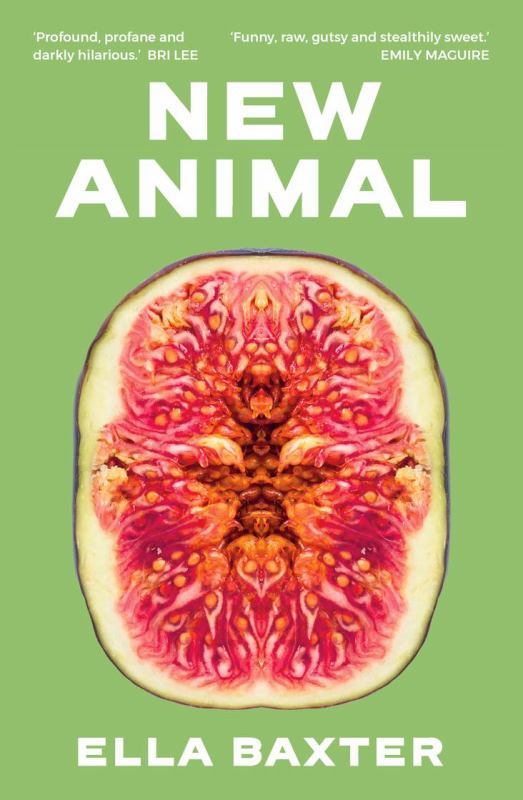Francis Bacon, a sixteenth-century English philosopher, tells us that the act of reading can feel a lot like eating: ‘some books are to be tasted, others to be swallowed, and some few to be chewed and digested.’ Fast forward to 2021 and we still speak of books as things to be gobbled up. We finish them within days of shucking open their spines, demolishing pages while curled up in armchairs and back corners of libraries.
I devoured New Animal, Ella Baxter’s debut novel, within three days. I’d intended to read it slowly, nibbling through one chapter at a time. But the book quickly gathers momentum. When Amelia’s mother dies suddenly she runs away to Tasmania to escape her family – and her feelings. There, she flits between her estranged father’s home and the local BDSM club, oscillating between grieving and sex. Amelia is constantly in motion, never pausing until she wears herself out. This restless pacing is part of what makes New Animal so moreish. I found myself chasing after Amelia, tearing through pages, thinking I could somehow jump ahead of her if I read them fast enough. But it’s worth slowing down to savour Baxter’s prose. She knows how to cut to the core of a feeling, with darkly funny – and sometimes gut wrenching – results. Her style reminds me of a line in Edward Albee’s Who’s Afraid of Virginia Woolf? that’s stayed with me; it’s about reaching the deepest part of a person, getting right down through their bones and into the marrow, so that they can feel everything. New Animal is woven with gutted observations about the world, their truth acidic on the palate.
Death and grieving are central to New Animal. Amelia confronts it on a daily basis, in her work as a mortuary makeup artist at the family business. But her job goes beyond bringing colour back into the bodies of the deceased. The scenes where she prepares them for viewings are some of the most touching parts of the novel. Amelia handles the dead with genuine tenderness. Even the act of fastening their jewellery is a process that demands respect; ‘putting a necklace on someone, or pushing an earring into an ear, is an intimate thing,’ she says. It gets me thinking about the behind-the-scenes of death, the rituals we don’t get to see, even when we’re close to the person who died. I’ve never considered what will happen to my own body, that someone like Amelia might treat it with care after I’m gone. I find the thought reassuring. I’m surprised to learn that Baxter also works within the business of death; both a writer and an artist, she’s known for crafting bespoke death shrouds. The pieces are handstitched with antique materials to resemble images of deep space. But the designs don’t remind me of galaxies. They look more like eyes, watchful and protective of the deceased person placed in their care.
New Animal is also a book about sex, and our need for different kinds of touch – even the painful, annihilating kind. The titular ‘new animal’ is the two-headed creature that’s formed during sex, when two bodies become a nonsensical mess of limbs and hair and skin. I appreciate the way Baxter talks about this monstrous side of sex. It naturally bleeds into her exploration of BDSM culture, and the way that those power dynamics can be used for great pleasure, or otherwise misused in the wrong hands. In particular, she leans into the idea of submitting to pain in a controlled environment. There were a few scenes in New Animal that made me feel deeply unsettled – death, grieving, and BDSM being the confronting topics that they are. But I never doubted that I was in safe hands. I knew that whatever territory Baxter was leading me into wasn’t going to hurt me.
New Animal will appeal to readers interested in the darker sides of sex and desire. Those who love Melissa Broder, Jeanette Winterson, and St Vincent’s MASSEDUCTION album will feel at home with Ella Baxter.
Melina Bunting is The Book Bird’s new guest reviewer. Melina is a writer and pop culture aficionado working on unceded Wadawurrung Country. She is a corporate writer by day and an experimental storyteller by night. Her other writing can be found in Matters Journal, Verandah and Voiceworks.


